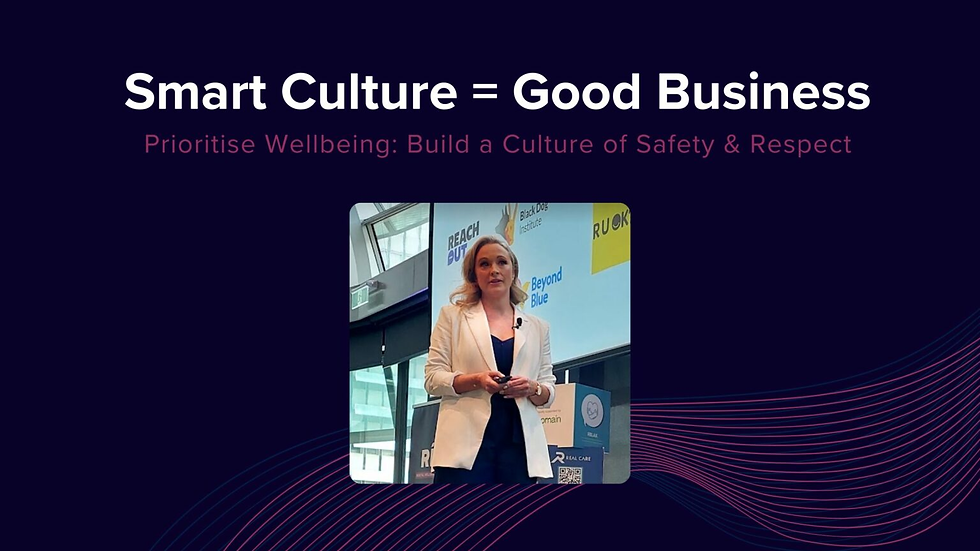SMART CULTURE = GOOD BUSINESS
- Convert Now
- Jun 17, 2024
- 2 min read
Updated: Nov 7, 2024

PRIORITISE WELLBEING: BUILD A CULTURE OF SAFETY & RESPECT
Karen Maher, a former lawyer and current workplace culture expert, discussed the importance of fostering a positive and safe workplace culture. She emphasised the need to be proactive in addressing issues like sexual harassment, bullying, and mental health to avoid serious consequences.

Key insights and lessons:
Mental health matters: Open communication about mental health is crucial to create a supportive workplace.
The reactive approach is outdated: Proactive measures are necessary to prevent workplace issues.
Workplace culture is linked to success: A positive workplace culture is essential for productivity, engagement, and talent attraction.
Five pillars of a great culture: Safety, continuous improvement, risk management, accountability, and awareness.
Sweat the small stuff: Addressing minor issues early on can prevent them from escalating into bigger problems.
New legal requirements: Australia has introduced new regulations regarding psychosocial safety and a positive duty to eliminate discrimination and harassment.
Respect at work: Organisations must take proactive steps to prevent and address disrespectful behaviour, including sexual harassment and bullying.
Bystander intervention: Leaders and employees have a responsibility to call out inappropriate behaviour and create a safe and respectful workplace.
Psychological safety: Foster an environment where employees feel safe speaking up about issues without fear of judgment or retaliation.
Encourage reporting: Establish clear reporting procedures and make sure employees know how to speak up about concerns.
Be curious, not furious: Respond to reports with curiosity and a willingness to understand the underlying issues.
Consult with employees: Seek feedback from employees to identify potential risk areas and develop solutions together.
Continual learning and improvement: Stay informed about evolving legal obligations and best practices in workplace culture.
Plan for a safe and respectful culture: Develop a comprehensive plan to address workplace culture issues and create a positive work environment.

Karen Maher concluded her presentation by emphasising the importance of taking action and prioritising a safe and respectful workplace culture. She encouraged the audience to implement the strategies discussed and work together to create a positive impact on their businesses and employees.

Commentaires